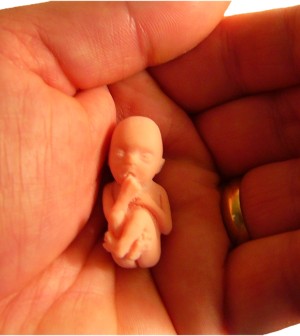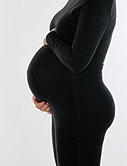- 8 Ways to Increase Dopamine Naturally
- 7 Best Breads for Maintaining Stable Blood Sugar
- Gelatin vs. Collagen: Which is Best for Skin, Nails, and Joints?
- The Long-Term Effects of Daily Turmeric Supplements on Liver Health
- Could Your Grocery Store Meat Be Causing Recurring UTIs?
- Are You Making This Expensive Thermostat Error This Winter?
- Recognizing the Signs of Hypothyroidism
- 10 Strategies to Overcome Insomnia
- Could Artificial Sweeteners Be Aging the Brain Faster?
- Techniques for Soothing Your Nervous System
Could Mothers’ Allergy Shots in Pregnancy Lower Kids’ Risk?


FRIDAY, Nov. 8Women who get allergy shots before or during pregnancy may lower the odds that their offspring will suffer from asthma, food allergies or eczema, a preliminary new study suggests.
Reviewing anonymous surveys from 143 mothers who had received allergy shots — also known as immunotherapy — researchers from the University of Tennessee Health Science Center in Memphis found a 10 percent to 12 percent reduced rate of allergies among the women’s children.
“It was our hope that allergy shots would help, and I wasn’t surprised,” said study author Dr. Jay Lieberman, an assistant professor of pediatrics at the center. But, he added, “I wouldn’t say this [research] is the end-all and be-all. We would love better data. This provides some background data to say this should be looked into further.”
Lieberman said the small number of participants lowered the impact of the results. “A drop of 10 percent to 12 percent [in children’s allergy rates] is meaningful, but is not statistically significant,” he said. “But I would call that clinically significant.”
The study is scheduled to be presented Friday at the annual meeting of the American College of Allergy, Asthma and Immunology (ACAAI) in Baltimore. Research presented at scientific meetings typically has not been peer reviewed or published, and results are considered preliminary.
More than 50 million Americans suffer from allergies of all types, including seasonal and food allergies, as well as asthma and the skin condition eczema. If both parents in a family suffer from allergies, their offspring have a 75 percent chance of following suit, according to the ACAAI.
Those odds drop to 30 percent to 40 percent for children with only one allergic parent, and up to 15 percent for children with no parental allergies.
Although allergies have no cure, allergy shots — monthly injections for three to five years once a maintenance dose is achieved — have been shown to control and sometimes eliminate symptoms.
Taking into account the children’s breast-feeding status, gender and other factors that affect allergy risk, Lieberman and his team found that kids whose mothers received allergy shots during pregnancy were 12 percent less likely to also develop allergies.
Those odds changed to 10 percent less likely for those whose mothers received allergy shots before pregnancy.
Of children whose mothers did not receive allergy shots, 62 percent were diagnosed with allergies compared with 52 percent of those whose mothers had the shots.
Dr. David Bernstein, a professor of medicine and environmental health at the University of Cincinnati, said it makes sense that the offspring of pregnant mothers receiving allergy shots might later gain some immunity from allergies.
“I think this research raises interesting possibilities,” said Bernstein, who was not involved in the study. “We’re trying to figure out why the instances of allergies have increased so dramatically and what to do about it. So it’s interesting to speculate what can happen in utero when pregnant women are already receiving immunotherapy.”
There appears to be no drawbacks for fetuses exposed to allergy shots during their mothers’ pregnancy, study author Lieberman said. Current clinical recommendations suggest pregnant women continue receiving the same injection dose as before pregnancy but not increase it, he said.
Lieberman has not planned a larger study to confirm the findings, but hopes other researchers will follow up on the data.
“I think a real-world trial that follows women … for 10 or 20 years would be feasible and ideal,” he said.
More information
Learn more about allergies from the U.S. National Library of Medicine.
Source: HealthDay
Copyright © 2026 HealthDay. All rights reserved.










